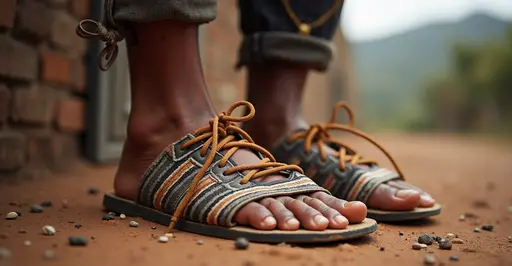
Global Sportswear Giant Faces Backlash Over Traditional Design
Adidas executives have personally visited the Mexican village of Villa Hidalgo Yalalag to offer formal apologies to the indigenous community after the German sportswear company was accused of cultural appropriation. The controversy centers around the "Oaxaca Slip-On" sandal, which local artisans claim was directly copied from their traditional huarache sandals without permission or compensation.
Traditional Craftsmanship Versus Mass Production
The huarache sandal has been handcrafted by Zapotec artisans in Oaxaca for generations, featuring intricate woven leather patterns that represent cultural heritage and identity. Adidas's version, created in collaboration with Mexican-American designer Willy Chavarria, features a strikingly similar woven design atop a modern sneaker sole.
Mexican President Claudia Sheinbaum condemned the appropriation, stating: "Big companies often take products, ideas and designs from Indigenous communities. It's collective intellectual property. There must be compensation. The heritage law must be complied with."
Legal and Cultural Implications
This incident marks the latest in a series of cultural appropriation cases involving major fashion brands and Mexican indigenous designs. Previous cases have involved companies like Zara, Anthropologie, and Louis Vuitton. Mexico has strengthened its intellectual property laws to protect traditional cultural expressions, with potential fines and prison sentences for unauthorized use.
Karen Gonzalez of Adidas Mexico publicly apologized during a special meeting with community leaders: "We understand that this situation may have caused discomfort and for that reason we offer our public apologies. We want to collaborate with the local population in the future to carefully handle their traditions."
Economic Impact on Artisan Communities
Handicrafts represent a crucial economic sector in Mexico, employing approximately 500,000 people nationwide. In states like Oaxaca, the industry accounts for about 10% of the gross domestic product. The mass production of culturally significant designs by international corporations threatens the livelihoods of local artisans who rely on traditional craftsmanship.
Adidas has removed all promotional images of the controversial sandal from its website and social media channels. The company has also initiated discussions with Oaxacan authorities regarding potential compensation for the affected community.

 Nederlands
Nederlands
 English
English
 Français
Français
 Deutsch
Deutsch
 Español
Español
 Português
Português





